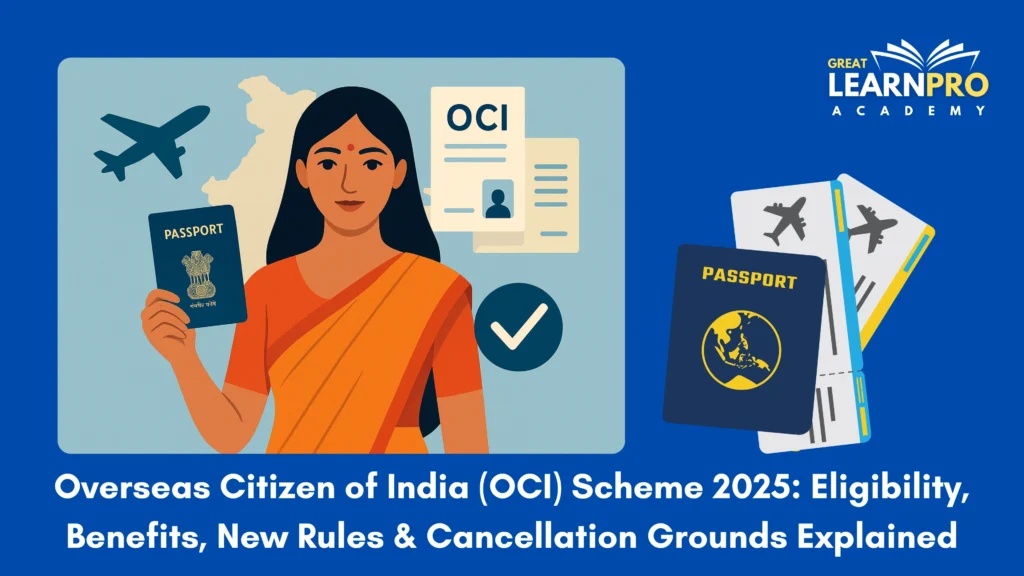
The OCI Scheme, established by the Citizenship (Amendment) Act of 2003, grants individuals of Indian origin who now hold foreign citizenship the right to lifelong visa-free travel, the ability to reside and work in India, and certain other privileges such as owning property. Yet, despite its name, OCI does not constitute full citizenship; cardholders cannot vote, hold public office, or enjoy certain constitutional rights.
Eligibility spans those who were Indian citizens on or after January 26, 1950, their descendants, spouses (subject to conditions), and people originating from territories that became part of India. Importantly, individuals with prior citizenship in Pakistan or Bangladesh, or whose ancestors held such citizenship, remain ineligible.
Over the years, further clarifications refined eligibility and rights such as divorcing OCI spouses losing status and specific military service exemptions (e.g. Israelis serving in their home forces). However, the Scheme never evolved into true dual citizenship; rather, it remained a privileged form of “long-term visa”.
What’s New: Recent Expansion of OCI Rules
In mid-2025, the Indian government announced two major updates under the OCI framework: a digital modernization for applicants and a legal tightening to enforce integrity and security.
-
Digital Streamlining: Revamped OCI Portal
On May 19, 2025, the Ministry of Home Affairs launched a user-friendly, revamped OCI portal, intended to streamline registration and service access for both existing and new OCI applicants. Home Minister Amit Shah described this digital leap as a step towards more citizen-friendly governance. The portal’s improved interface and functionality stand to benefit over 5 million OCI cardholders globally.
-
Stronger Legal Vigilance: Grounds for Cancellation Expanded
A significant policy shift followed in August 2025: the Home Ministry released a gazette notification tightening grounds for OCI cancellation. The revised framework includes the automatic cancellation of OCI status if a cardholder is:
- Convicted and sentenced to two or more years in prison;
- Charge-sheeted for crimes carrying seven or more years imprisonment;
- Proven to have obtained OCI status through fraud, concealment, or false representation;
- Displayed disaffection toward India’s Constitution;
- Misused the status during war, by aiding enemies;
- Deemed to pose risks to India’s sovereignty, security, or its public interest
Notably, these rules apply regardless of whether the offense occurred in India or abroad and even allow revocation within five years of registration under certain conditions.
Implications: Why the Overhaul Matters
-
Security Prioritized Over Convenience
The tightening reveals a clear shift in intent from broad diaspora outreach to a more security-conscious approach. It ensures OCI privileges cannot be exploited by those with serious criminal liabilities or threats to national stability.
-
Raising Digital Efficiency
The upgraded portal underscores India’s commitment to digital public infrastructure, aiming to improve accessibility for OCI applicants and reduce bureaucratic friction.
-
Increased Vulnerability of OCI Status
While the stricter rules fortify national safeguards, they also make OCI status more precarious especially for individuals involved in contentious political, journalistic, or academic arenas. Notable cases like those of Aatish Taseer and Reuters journalist Raphael Satter whose OCI cards were revoked have drawn attention to the political sensitivity surrounding status revocation.
-
Legal Clarity & Global Application
The legally codified grounds for cancellation provide greater clarity, enabling consistent application globally. However, they also raise debates about fairness, discretionary application, and transparency.
Looking Ahead
The recent updates to the OCI Scheme mark a critical inflection point. By bolstering both digital access and legal accountability, the government signals its intent to maintain a fine balance between embracing the diaspora and protecting national interests.
For prospective or current OCI holders, these changes underscore the importance of understanding both the privileges and responsibilities that come with the OCI card. As India continues refining its policies, ensuring equitable, transparent, and just governance for its extended global family will be key.
Sources:
- https://timesofindia.indiatimes.com/nri/govt-tightens-oci-rules-overseas-citizenship-holders-risk-losing-status-convictions-of-2-years-or-more-to-lead-to-cancellation/articleshow/123259615.cms?utm_
- https://www.reuters.com/lifestyle/aatish-taseer-identity-belonging-nationalist-age-2025-07-10/?utm_
More Current Affairs: https://learnproacademy.in/updates/
